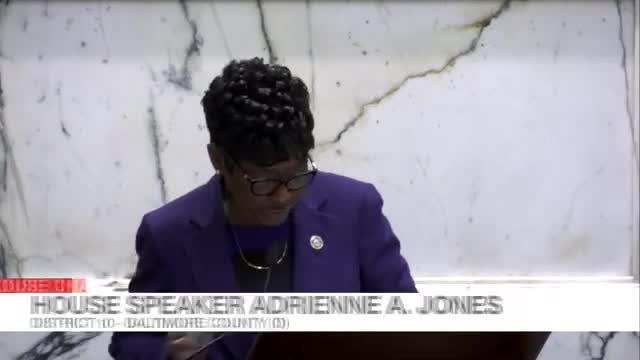House debates expanding Prescription Drug Affordability Board powers; bill special-ordered for amendment
Get AI-powered insights, summaries, and transcripts
Subscribe
Summary
The Maryland House of Delegates on Feb. 18 debated House Bill 424, which would expand the Prescription Drug Affordability Board’s power to set upper payment limits and, after a pilot, apply those limits to the commercial insurance market.
The Maryland House of Delegates on Feb. 18 debated House Bill 424, a measure that would expand the Prescription Drug Affordability Board’s authority to set upper payment limits and, contingent on a pilot, apply that authority to the commercial insurance market.
Floor Leader (Floor Leader) summarized the bill’s purpose and contingency: the board, created under a 2019 law, is preparing affordability analyses of selected drugs and may set upper payment limits as one tool to control rising prescription costs. “Upper payment limits are not price caps,” the Floor Leader said. “What they are is what we as a state can afford to pay for a particular drug.” He added, “It's like you're budgeting for your household. This is how much I can pay for eggs.”
The Floor Leader told the chamber the board would begin analyses on six drugs and that the legislature had included a contingency requiring the board to set limits for at least two drugs before the authority could be applied to the commercial market. He said prescription-drug spending has become a major driver of premiums: “they are now taking up about 40% of every premium dollar that we pay here in Maryland.”
Minority Leader (Minority Leader) questioned how limits would work where manufacturers or sellers price drugs higher in neighboring states. He asked whether a state-set upper payment would force providers to refuse sales in Maryland or require patients to pay the difference. The Floor Leader replied that insurance plan design determines what patients pay at the counter and that lowering payer costs could lower premiums and coinsurance. He also argued manufacturers and the pharmaceutical supply chain could offset reduced revenues through changes in advertising, dividends, or other business choices.
Members also discussed uncertainty at the federal level, including paused or suspended federal price-negotiation measures, and the Floor Leader said Maryland lawmakers want to be prepared if federal policy changes take effect.
Outcome: Minority Leader moved to special-order the bill for possible amendment; the House approved the special order and set the bill for further consideration the following day.
Why it matters: The bill would give the state a new lever to address prescription costs and could affect insurance premiums and out-of-pocket costs for Marylanders if expanded to the commercial market. The bill was not finally adopted on the floor; it was set aside for amendment and further debate.
